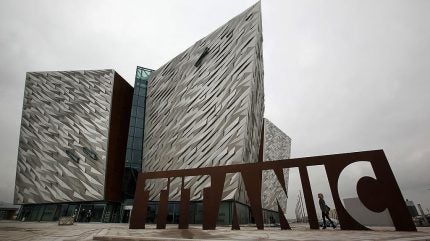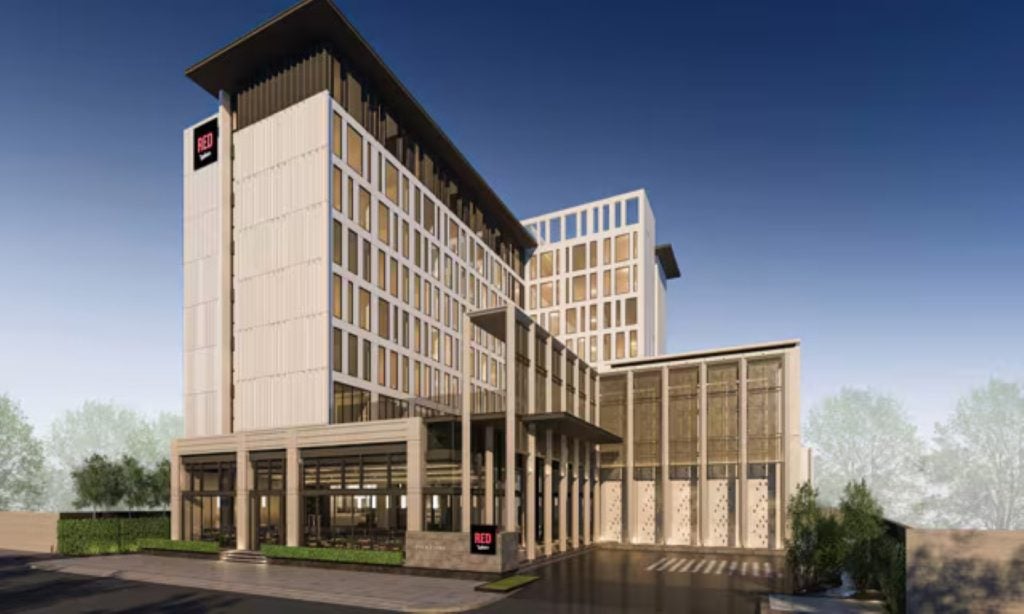

Belfast – Northern Ireland’s capital city – was built on its shipyard and linen textile trades, although to say it has a rich and complex history would be something of an understatement. Since the partition of Ireland in the 1920s, Belfast has acted as the seat of government for Northern Ireland, although the Assembly has suffered a series of disruptions amid the country’s civil unrest. Throughout this time, however, the capital city has been the most significant investment location within Northern Ireland.
In fact, Belfast is crucial to Northern Ireland’s success as a destination for foreign direct investment (FDI). The 2020 EY UK Attractiveness Survey cited Belfast as the most important regional FDI hub in the UK between 2018 and 2019.
During ‘The Troubles’ of the 1970s and 1980s, Belfast gained a reputation as a dangerous, fractured city, as loyalist and republican groups such as the UVF and the IRA waged terror campaigns across Northern Ireland and, in the case of the IRA, in England. Ever since the signing of the Good Friday Agreement in 1998, however, which all but ended the violence in the country, much work has gone into shifting that perception of Belfast. The city has gone from building ships – most famously the RMS Titanic – to building peace and, with it, profits.
No stranger to resilience and reinvention, Belfast is looking to handle the economic fallout from the Covid-19 pandemic through growth in innovative sectors ranging from film production to cybersecurity. It also benefits from a unique position post-Brexit, with trade powers that other UK cities cannot utilise.
The Belfast Region City Deal
A driving force for Belfast’s rejuvenation is the Belfast Region City Deal (BRCD). The deal includes a £350m investment from the UK government, which was then matched by the Northern Ireland Executive, with a further £150m being invested by the BRCD’s partners.
How well do you really know your competitors?
Access the most comprehensive Company Profiles on the market, powered by GlobalData. Save hours of research. Gain competitive edge.

Thank you!
Your download email will arrive shortly
Not ready to buy yet? Download a free sample
We are confident about the unique quality of our Company Profiles. However, we want you to make the most beneficial decision for your business, so we offer a free sample that you can download by submitting the below form
By GlobalDataThe deal includes an investment plan that will focus on four key investment pillars – infrastructure, tourism and regeneration, innovation and digital. It will also work to ensure that Belfast has within it the skills to help these pillars thrive. Ultimately, the deal plans to provide 20,000 jobs with a projected annual gross value added (GVA) impact of £470m.
How will Brexit impact Belfast?
With Brexit causing headaches for cities across the UK, Belfast finds itself with exclusive powers across both the UK and EU. Steve Harper, executive director of international business at Invest Northern Ireland, is optimistic about Belfast’s position.
“If you are trading goods, Northern Ireland is the place to come and set up access to both [the UK and the EU],” he says. “Undoubtedly, there are still issues [regarding the] supply chain from Great Britain into Northern Ireland, and it would be wrong of me to say there aren’t issues. But selling something from Northern Ireland into Great Britain? There are zero issues. There is no paperwork or exit declarations needed.”
Joe O’Neill, chief executive of Belfast Harbour and chair of the Renewed Ambition initiative, mirrors this sentiment. “We would advocate that Northern Ireland now has a unique proposition in terms of capability and capacity to serve both marketplaces with a minimal administrative burden,” he says.
Selling something from Northern Ireland into Great Britain? There are zero issues. There is no paperwork or exit declarations needed. Steve Harper, Invest Northern Ireland
This strengthened supply chain could boost Belfast’s manufacturing industry. Manufacturing and engineering have remained important to the city despite a more widespread industrial decline in Northern Ireland and the wider UK. The industry boasts a long list of sub-sectors including aerospace, automotive, electronics, energy and consumer products.
Harper says: “Manufacturing is growing massively; we have a really strong history in engineering in Northern Ireland. One in every three aircraft seats [globally] is made in Northern Ireland.
“[We are looking] to really drive innovation in manufacturing. How can we take a lot of the artificial intelligence that is being used in our software sectors, and all of the knowledge that is in the data analytics, and apply that to our traditional manufacturing? Not only to create new products, but to keep us competitive.”
Another sector that could see a potential benefit from Belfast’s position in a post-Brexit UK is life sciences.
Harper says: “If you are a pharmaceutical company, you come to Northern Ireland, you develop a new drug and you licence it here, it will be certified to EU standards, and vice versa with the UK.
“We now have that extra string to our bow. We could actually save companies an awful lot of time and an awful lot of certification and all of those non-financial barriers.”
Finance and insurance services see biggest GVA growth
When looking at GVA growth in Belfast between 2000 and 2018, finance and insurance services have skyrocketed.
Belfast is considered to be one of the eight UK financial centres, with Citi, Liberty Mutual, Baker McKenzie, KPMG, PwC and Deloitte all having a presence in the city. Fintech, in particular, has been cited as an important growing sector for Belfast.
Meanwhile, information and communications technology (ICT) has also experienced strong growth in Belfast since the turn of the millennium, as the above graph shows.
Alistair Reid, the strategic director for place and economy at Belfast City Council, says: “Cyber tech is our lead sector in terms of new industries. We are the number one international investment location for cybersecurity development projects and one of the top ten tech cities in the UK. We are in the UK top four for tech clusters for digital job density and digital tech turnover.”
BT, PwC, Deloitte and EY all have cybersecurity operations based in Northern Ireland, and in 2020, Microsoft chose Belfast as the location for a new cybersecurity hub, creating 85 new jobs.
We have two first-class universities, bringing forward the supply of talent, much of which is quite happy to stay in the city. Alistair Reid, Belfast City Council
Reid stresses that the city’s universities offer key support to not just the growing ICT sector, but for life sciences and manufacturing.
“We have two first-class universities, bringing forward the supply of talent, much of which is quite happy to stay in the city,” he says. “In terms of the specialisms of these universities, there is an alignment between the growth areas – cyber tech, life sciences and advanced manufacturing.”
Harper explains the synergy between Belfast’s universities – namely Queens University and Ulster University – and government and industry. “We are really joined up in Northern Ireland,” he says. “Businesses, academia and government are so closely linked. We talk about the companies that are in our pipeline.
“The universities will ask us: ‘What skills are investors looking for?’ The executive can then switch and add more funding into the universities to allow them to have more software grants coming through and the universities can tweak their curriculums to match. It is a really joined-up approach to making sure that the talent is there for the investors.”
How Belfast benefits from strong transport connections
Belfast’s industrial roots and port have created a legacy for the city, with its port continuing to act as an important commercial and industrial area, with the famous Harland and Wolff shipyard still in operation.
Reid highlights just how well-connected Belfast remains in present day. “Belfast City Airport is 20 minutes from the city centre, and you can fly into London in an hour,” he says. “We have two airports, but it is really three if you count South Belfast airport [which is Dublin]. But hey, if London can count Luton.”
Chris Conway, CEO of Translink, Northern Ireland’s transport holding company, goes into more detail. “We have got a number of infrastructure projects in the city deal. For example, we successfully implemented the rapid bus transit system, which is effectively a tram on rubber wheels, which connects the east and west of Belfast.”
Conway highlights that this is a symbolic development for the city, saying: “It has connected parts of Belfast that were typically politically apart and brought them together culturally.”
The Weavers Cross project
Alongside these developments, the Weavers Cross project is a transport-led regeneration initiative that sits within Belfast City Council’s agenda for a new vision for the city by 2035. The project has lofty aims to create 50,000 jobs and attract a further £1bn of investment into the city.
Conway stresses that Weaver’s Cross is more than a transport project, however.
“[Alongside the transport hub aspect] it will be a significant development site,” he says. “We estimate it to be about 120,000m² of development space, with a gross development value of about £380m. Translink owns the majority of that land, and we plan to enter into a joint venture with a private sector partner to develop the land.”
The project will also create Saltwater Square, which will serve as a community space. Conway says: “This used to be the centre of Belfast; it is a key part of the city. It is much in need of regeneration now and this is the opportunity and the catalyst to do that.”
Belfast harbour – the most diverse port in the UK?
The Belfast port – along with the city quays – are undergoing a spell of regeneration under the BRCD.
O’Neill highlights that as well as being the largest port in Northern Ireland and handling 70% of seaborne trade for the country, this is also the largest single harbour state in the UK. “We have a 810ha harbour state – a significant landbank – that is available for non-marine use,” he says.
Nicole Kidman put out some fantastic, complimentary media messaging around her experience of filming here, in effect saying she would love to come back and live in Belfast. That is priceless. Joe O’Neill, Belfast Harbour
This landbank has allowed Belfast Harbour to wildly diversify its offerings, from manufacturing to movie-making. O’Neill highlights the sectors involved.
“We have got just about every imaginable land use on the state, through big box retail through to significant manufacturing companies,” he says. “There are 760 entities based on the harbour state.”
One of the most unusual developments is the Belfast Harbour film studios. Belfast, and more broadly Northern Ireland, have seen their soft influence rise significantly as a location for TV and films. Game of Thrones and Line of Duty have both been hugely popular and were filmed in and around the city. This has attracted the attention of big names such as Netflix, Universal and Paramount. Now, alongside Belfast’s two existing stages, a further six are in the pipeline.
For O’Neill, the TV and film sector brings with it for the kind of publicity and tourist interest that money can’t buy. “Nicole Kidman put out some fantastic, complimentary media messaging around her experience of filming here, in effect saying she would love to come back and live in Belfast. That is priceless,” he says.
Skills + low cost = attractive proposition
When asked for the key points of what makes Belfast attractive to investors, Harper lists access to talent, good infrastructure and low operating costs as key.
“We are joined up between business, academia and government, and we are able to turn that tap on and off for the skills that are needed by investors,” he says. “When you put that level of high-performing talent against a cost basis, it is really unbeatable – it is a really strong proposition.”
Reid mirrors this sentiment, saying: “Your labour will be 30% cheaper, and your operating costs will be up to 50% cheaper than London or Dublin. We have a great track record. Some 900 international companies are operating from the city, and 75% of those who are invested, reinvest.”






